Common Issues Found in Older Homes: What to Look for Before Buying
When looking for a new home, the first choice a buyer has to make is between buying a new home or an older home. Many people prefer older homes for a number of reasons such as character, design, workmanship, mature landscaping, and being in an established neighborhood. At the same time, older homes can have issues that make a home inspection particularly important if you prefer an older home.
In this blog, we’ll look at some common issues found in older homes so that you’ll know what to look for before buying that Victorian or Colonial you’ve had your eye on.
Outdated Electrical Systems
Original wiring, such as knob-and-tube, will no longer be up to code. If the wiring hasn’t been maintained, it could lead to an electrical fire. Knob-and-tube wiring is typically found in homes built before 1940, and in some cases, while it was being phased out, it was used in parts of the country up until the 1950s. The lifespan of electrical wiring installed before 1940 lasts roughly 70 years, while newer wiring should last at least 100 years. Once the insulation deteriorates to the point that the actual wire is exposed, the risk of electrical fire, shocks, short circuits, and localized (single- or multi-room) power failures increases dramatically.
Unless the electrical systems have been updated, older homes often don’t have enough outlets to accommodate the wide array of electrical devices that people want in their homes today. They might also not have enough power supply to handle energy-hungry modern appliances, such as whole-house heat pumps, induction stoves, and electric vehicle chargers.
Roof Issues
A poorly maintained roof will lead to water damage inside the home and to your personal property, plus poor energy efficiency. Older homes often have older, possibly deteriorating, roofs. This can lead to a number of problems, including pest infestations, leaks, interior water damage, and less-effective insulation. While different types of shingles have a wide range of lifespans, it really depends on the weather, maintenance record, installation quality, and roof grade. Areas with extreme weather like South Florida, desert areas like Arizona, and Midwestern Northeast states where there are extreme hot and cold seasons are more likely to need roof repairs sooner than in milder climates.
Foundation Problems
Foundation issues in old homes are common and must be addressed to maintain your home’s livability. They can range from smaller settlement cracks to damaged support footings. Due to the movement of the dirt around the house, foundations settle over time. Settling leads to cracks, moisture, or water in the basement, and uneven floors in the living areas.
Foundation issues move up into every other part of the house, from doors to windows to the roof. Causes of foundation issues can range anywhere from normal wear and tear due to age, to overly wet soil, tree roots from a well-established tree, or seismic activity.
Plumbing Concerns
The largest concern with an old plumbing system is the possibility of a pipe bursting that floods the home or causes major water damage to the walls and floors. A severe breakdown can temporarily cause the home to be uninhabitable and cost tens of thousands of dollars to clean up, though homeowners insurance often covers the damage. It can also cause longer-term problems, such as mold infestations.
Damage caused by tree roots is another old home plumbing issue that’s commonplace in heavily vegetated neighborhoods, which tend to be older and have large numbers of older homes. Over time, tree roots can work their way into older drainage pipes under or outside the home’s foundation, breaking through pipe joints.
Failing or Inefficient Mechanicals and Appliances
Older houses are more likely to have old mechanical equipment, such as water heaters, furnaces, and air conditioning units, as well as older household appliances. Mechanical and appliance lifespan varies by item, brand, and workload. Equipment near the end of its useful life is more prone to failure, raising the possibility of an inconvenient or dangerous situation — such as the heat going out in the dead of winter or an electrical fire — that needs to be addressed immediately. Moreover, older equipment is usually less energy-efficient, resulting in ballooning utility costs.
Toxic Gases and Hazardous Materials
Radon is a radioactive gas that occurs naturally in certain types of bedrock. An Environmental Protection Agency report shows elevated radon potential across broad swathes of the Northeast, Midsouth, Midwest, and Intermountain West, but it can occur anywhere. Radon enters homes through cracks in the foundation perimeter and basement walls, which are more common in older homes. The gas then circulates throughout poorly ventilated houses over time. Radon is the leading cause of lung cancer for nonsmokers and exposure to radon over the accepted safe concentration level is not recommended for long periods.
Carbon monoxide can be caused by gas leaking from a stove, dryer, oven, or HVAC system and can cause dizziness, headaches, shortness of breath, and eventually death.
As building materials have evolved over the decades, scientists have discovered that materials once thought safe were hazardous. However, they could still be present in older homes. Hazardous materials you could find in an older home include asbestos (used as insulation in walls, floor tiles, and to wrap boilers between the 1930s to the 1970s), lead-based paint (used in homes built before 1978), VOCs, or volatile organic compounds, and mold or mildew.
Mold and Mildew Damage
Over time, homes exposed to excessive moisture often develop mold and mildew problems. Though most frequent in basements and bathrooms, moisture-related microorganism growth can occur anywhere. The problem is more likely to occur in old homes because moisture more readily seeps through cracked foundations and leaky pipes. Uncontrolled growth can aggravate allergies and other respiratory problems (such as asthma) even in healthy children and adults. More serious infections can develop in the very young, the very old, and those with compromised immune systems.
Also, mold eats away at its host surfaces, particularly wood, drywall, grout, and other porous or semi-porous substances. Unchecked mold infestations can cause structural problems and render a home temporarily or permanently uninhabitable.
Energy Inefficiency
Part of the charm of an older house may be the magnificent old windows, but during the winter, you might be having second thoughts. Old windows and doors contribute to poor energy efficiency. Wood expands and contracts throughout the seasons, and over the years this leads to poorly fitted windows and doors. Heat escapes through single-pane glass, under gaps between doors and the floor, and cold air and possibly water can take its place. Older homes may suffer thermal losses from single-pane windows, insufficient or compressed insulation, and leaking ductwork. Many older homes are built without insulation, or what they do have is ineffective.
Pests
On occasion, older homes have unwelcome visitors like carpenter ants, termites, mice and rats, and powder post beetles. If the prior owners didn’t address pest infestations, they could have seriously damaged your home’s structure. Entire plate sills, a part of the foundation that serves as a base for a floor joint frame, can be eaten away by termites. Mice chew on wood, and carpenter ants dig into wood to build their nests; both pests cause structural damage. The problem is exceptionally serious in the southern half of the country, where termites are active for most or all of the year. Older homes are more likely to have active termite infestations or preexisting termite damage due to compromised foundations or drywall.
The Bottom Line on Common Issues Found in Older Homes
While there are many potential issues with older homes don’t let them scare you away from buying the home of your dreams. The key to successfully negotiating these issues with the seller is the home inspection. Working with a reputable and trusted inspector is crucial. Not only will your inspector educate you about what to look out for, but they can also help in making informed decisions and negotiating repairs or renovations if necessary.
At CMS Home Inspection our thorough home inspections provide the tools necessary for you to understand the structure behind any potential property, as well as necessary repairs. A quality inspection report can mean the difference between owning your dream home and buying a house that falls short.
While your Realtor will have a preferred inspector, who you use is up to you. Many homebuyers prefer to find their own inspector to work with so they can be assured the inspector is working for them in their best interest. Let’s connect if you have questions that you want answered or are ready to schedule your inspection.

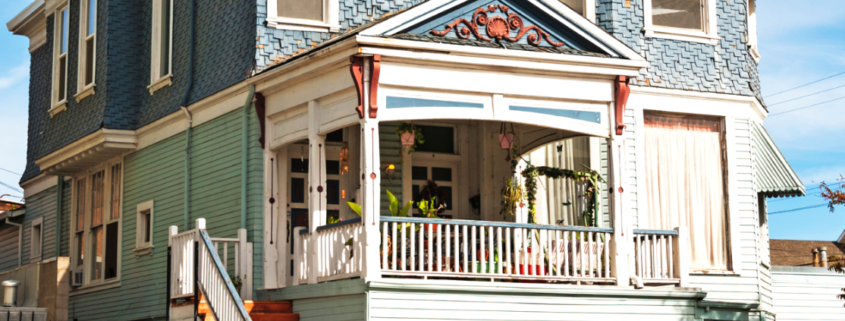

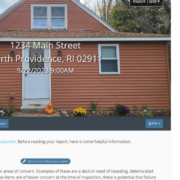
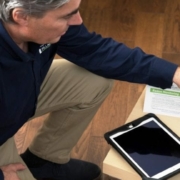
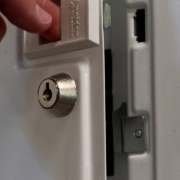

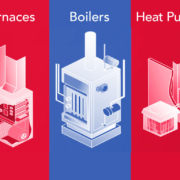

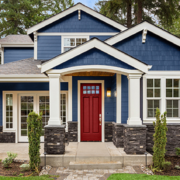
Leave a Reply
Want to join the discussion?Feel free to contribute!